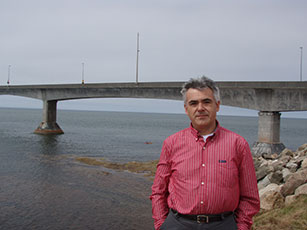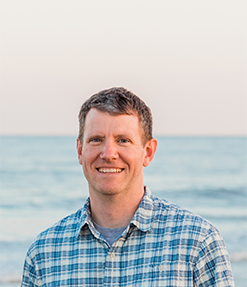Marine Science
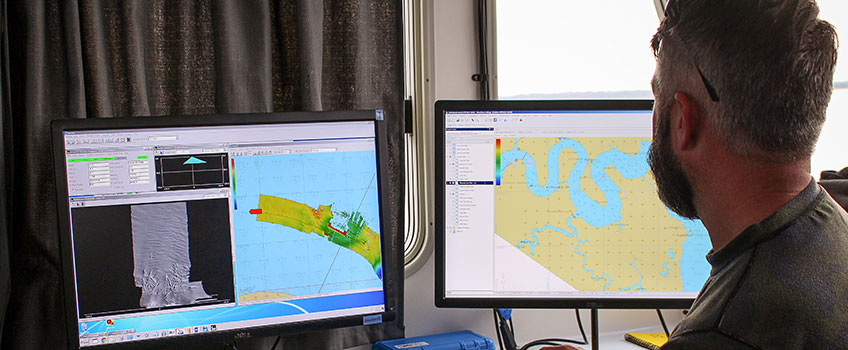
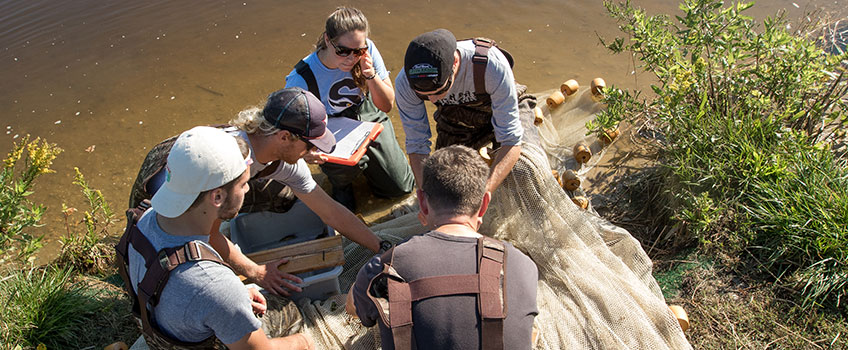
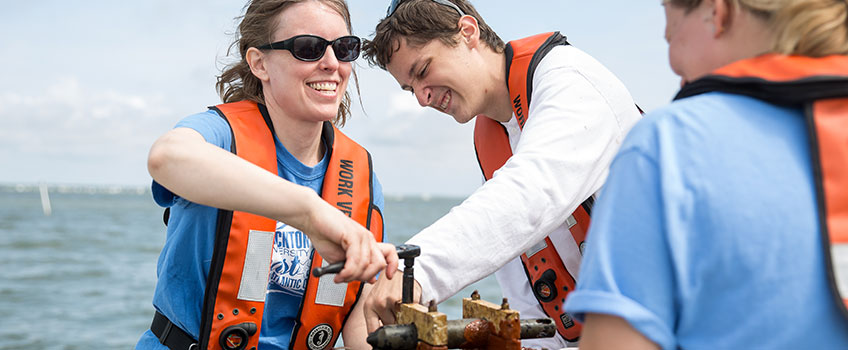
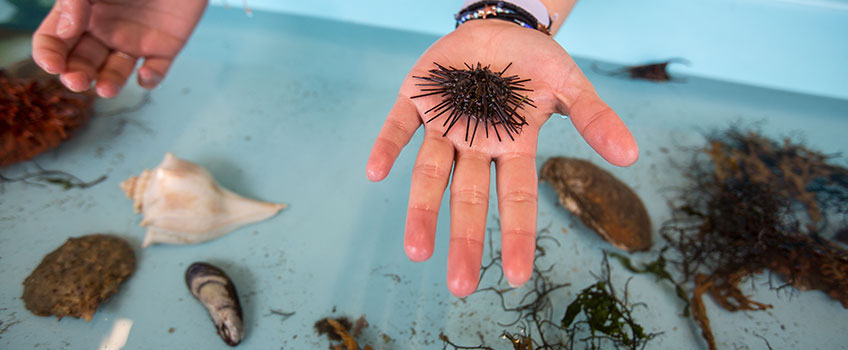
Stockton's Marine Science (MARS) program encompasses two general areas of study: Marine Biology and Oceanography. The program is interdisciplinary and requires student competence in several areas of science. A number of field and laboratory courses, seminars, independent studies, internships, and research opportunities that emphasize experiential learning are offered.
Stockton University is one of only a few undergraduate institutions in the U.S. that offer a degree program in Marine Science with a dedicated, easily accessible field facility (Stockton Marine Field Station). Students have the opportunity to collaborate with faculty to design and implement research projects. Students are encouraged to present results at the NAMS Undergraduate Research Symposium and regional conferences.
About the Program
Mission Vision
Stockton University’s Marine Science Program is dedicated to undergraduate experiences
within a coastal environment, to form ocean-literate citizens.
Mission Statement
The mission of the Marine Science Program at Stockton University is to promote curiosity and critical thinking through quality education and hands-on experiences both in and out of the classroom. Students will develop intellectually, personally, and professionally within the small class setting, using cutting-edge technology to apply themselves to real-life scenarios within the marine biology and oceanography career fields.
Program Recognition

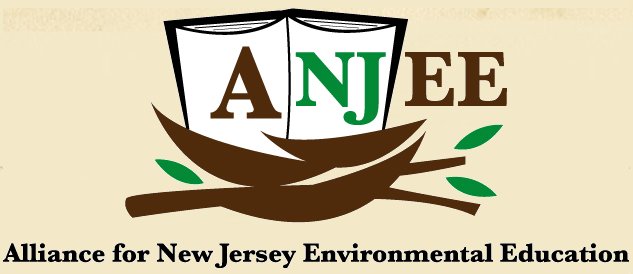
Inclusion in Education for the Earth: A Guide to Top Environmental Studies Programs
Program Features
- Every student is assigned a faculty member in the program as their academic advisor (preceptor).
- Small, field-oriented course sections taught primarily by full-time faculty (not by graduate assistants).
- A dedicated, easily accessible Marine Field Station focused on undergraduate education and research.
- The Environmental Studies and Marine Science programs were selected by Peterson's Guides and the Alliance for Environmental Education for inclusion in Education for the Earth: A Guide to Top Environmental Studies Programs
- Numerous field-related volunteer, internship, and employment opportunities in the area.
Student & Alumni Highlights
A Summer Filled With Unforgettable Experiences
Learn more about Meier in The Essential Elements article From Stockton to the Smithsonian: A Marine Science Student's Incredible Journey into the Field of Taxonomy.
Curriculum
Stockton’s Marine Science (MARS) program encompasses two general areas of study: Marine Biology and Oceanography. Within each of these broad areas of study are several focus areas that students may choose from, as a function of their selected electives. Examples include physical oceanography, marine geology, ocean chemistry, resource management, estuarine/marine ecology, and marine technology/survey.
Prospective freshman or transfer students can use the Curriculum & Transfer Equivalency tool below. In addition, the program degree map provides valuable degree information and is a guide to assist in planning academic coursework, but should not substitute academic advisement.
Degree Offerings
Bachelor of Arts or Sciences in Marine Science with Marine Biology Concentration
Bachelor of Arts or Sciences in Marine Science with Oceanography Concentration
Minor in Marine Science
MinorDegree Works Curriculum & Transfer Equivalency Tool
To see the curriculum for your area of interest, you’ll use the web program, Degree Works. This service is accessible even if you are not currently a student with Stockton University.
Current students exploring the various paths towards degree completion should access the "what if" option in their Degree Works through the portal.
Instructions on How to Use Curriculum Tool
Best 15 Oceanography Degree/Marine Science Program
Faculty

Anna Pfeiffer-Herbert
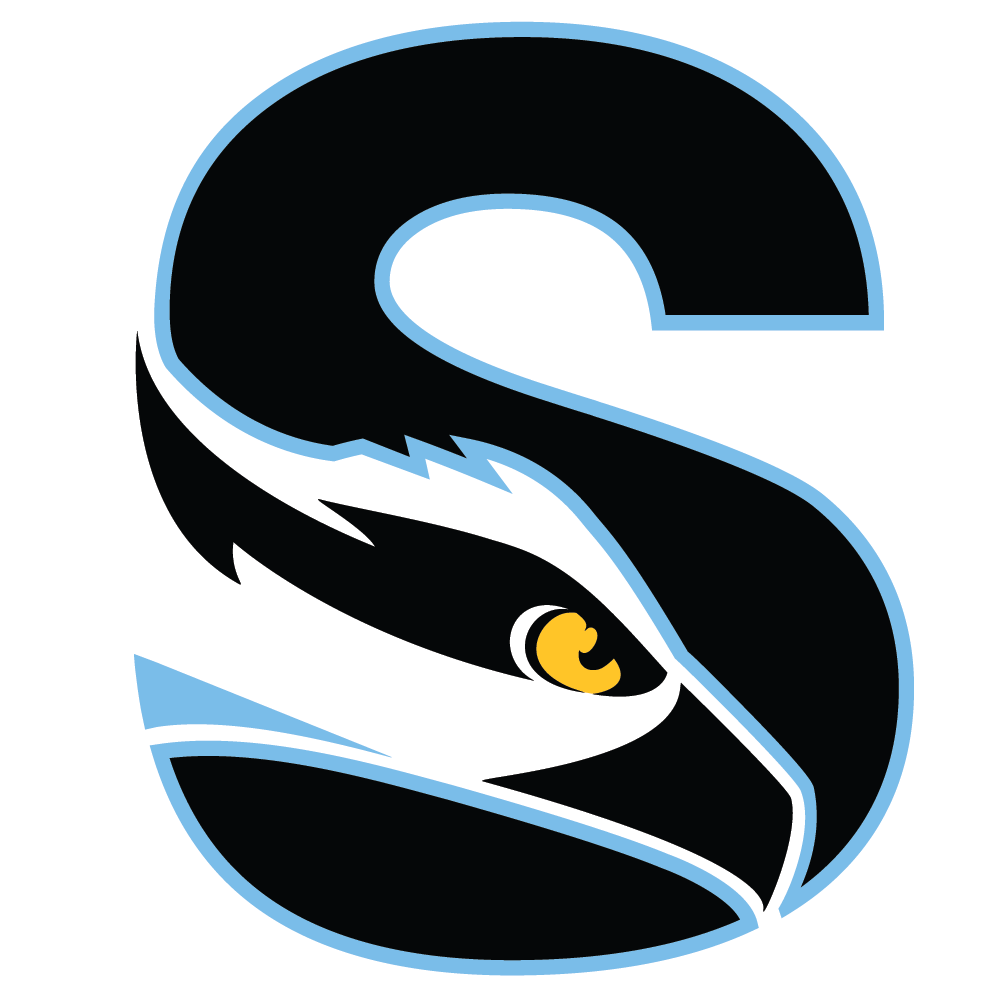
Camilla Alves Souto
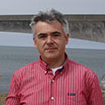
Gordan Grguric

Susanne Moskalski

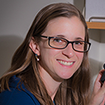
Christine Thompson




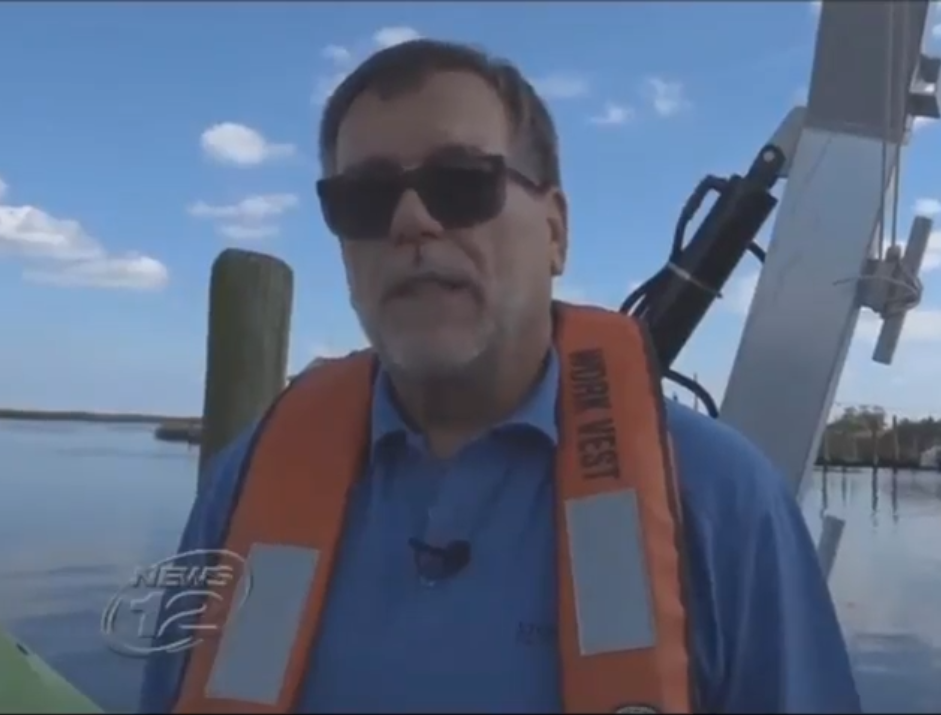



Research Opportunities
Scientific presentations are an important part of the student research experience. The Marine Science Virtual Research Symposium includes the visual aspect of a well-crafted research posteras well as the oral presentation of the key findings from the student's study. Many students present these posters at local, regional, and national conferences in addition to making them available at the MARS Virtual Research Symposium site.
2020 Virtual Symposium
Isabelle Zoccolo '20
B.S. Marine Science with a concentration in Marine Biology; Minor in Environmental Science
Title: Sargassum Mitigation Location in Barbados
Principle Investigator: Dr. Elizabeth Lacey
Abstract
Sargassum, which is normally viewed as a species that forms a highly productive ecosystem
in the open ocean, has been causing problems on and around Caribbean shores both ecologically
and economically. It forms thick mats which shade and suffocate other ecosystems,
such as seagrass beds, as they travel nearshore and begin to decompose.Barbados’ beaches
used for recreational and commercial purposes have been initiated with Sargassum.
The Barbados government needs to focus their mitigation effort.
Danielle Dyson '22
B.S. Marine Science with a concentration in Marine Biology
Title: Changing Seagrass on the Barnegat Bay
Principle Investigator: Dr. Elizabeth Lacey
Abstract
Sargassum, which is normally viewed as a species that forms a highly productive ecosystem
in the open ocean, has been causing problems on and around Caribbean shores both ecologically
and economically. It forms thick mats which shade and suffocate other ecosystems,
such as seagrass beds, as they travel nearshore and begin to decompose. Barbados’
beaches used for recreational and commercial purposes have been initiated with Sargassum.
The Barbados government needs to focus their mitigation effort.

The Marine Science Program offers a number of opportunities for students to get involved in various areas of interest outside of the classroom. These include student-organized clubs, as well as student chapters of established professional societies.
Careers
Graduates of the Marine Science program seek employment directly with their B.A. or B.S. degrees, or go on to graduate school to work for M.S. or Ph.D. degrees. There are a number of employment opportunities in this field, both in the private and public sectors. Students concentrating in Oceanography, and those taking additional electives in marine geology, marine technology, and underwater surveying, should do well in an increasingly quantitative field.
Stockton graduates in Marine Science have been very successful in obtaining entry-level positions in their field with local, state, and federal agencies. Such positions have involved laboratory work, fieldwork on marine habitats, data analysis, K-12 and public education, and law enforcement. Some have gone on to consulting jobs with private firms, while others have entered postgraduate study at major universities.
All Marine Science students are required to take a 1-credit seminar course that prepares them for successful careers after graduation. Regardless of area of interest, undergraduate students who seek additional hands-on experiences outside of the classroom tend to flourish at the next level.
Potential Careers
There are a wide variety of jobs within marine sciences. Here are just a few examples of potential careers:
The connections you made with your professors and preceptors are invaluable resources for your career planning. Beyond providing assistance on coursework and scheduling, they can give you guidance in planning for your post-college career.
In addition, we have a student Career Center that is available to guide you through your career development journey - from CV writing, interview prep or general guidance.
Alumni Highlights
Alumni Success
As a student, I was involved in the mapping of the Robert. J. Walker through the New Jersey Benthic Studies class taught by Dr. Peter Straub (now Dean Peter Straub). I was one of three students on the project, and was able to get amazing experience working with the ROV and multibeam.

B.S. Marine Science '15
I only just graduated from Stockton University in August 2014, but I have already used my degree to pursue incredible adventures, like scuba diving off Puerto Rico and working with crime investigation on Discovery Channel.
B.S. Marine Biology, '14
Studying Marine Science at Stockton was an incredible experience and led me to ultimately become a high school Biology teacher and Teacher Leader for the school's science department.
B.S. Marine Science '93
